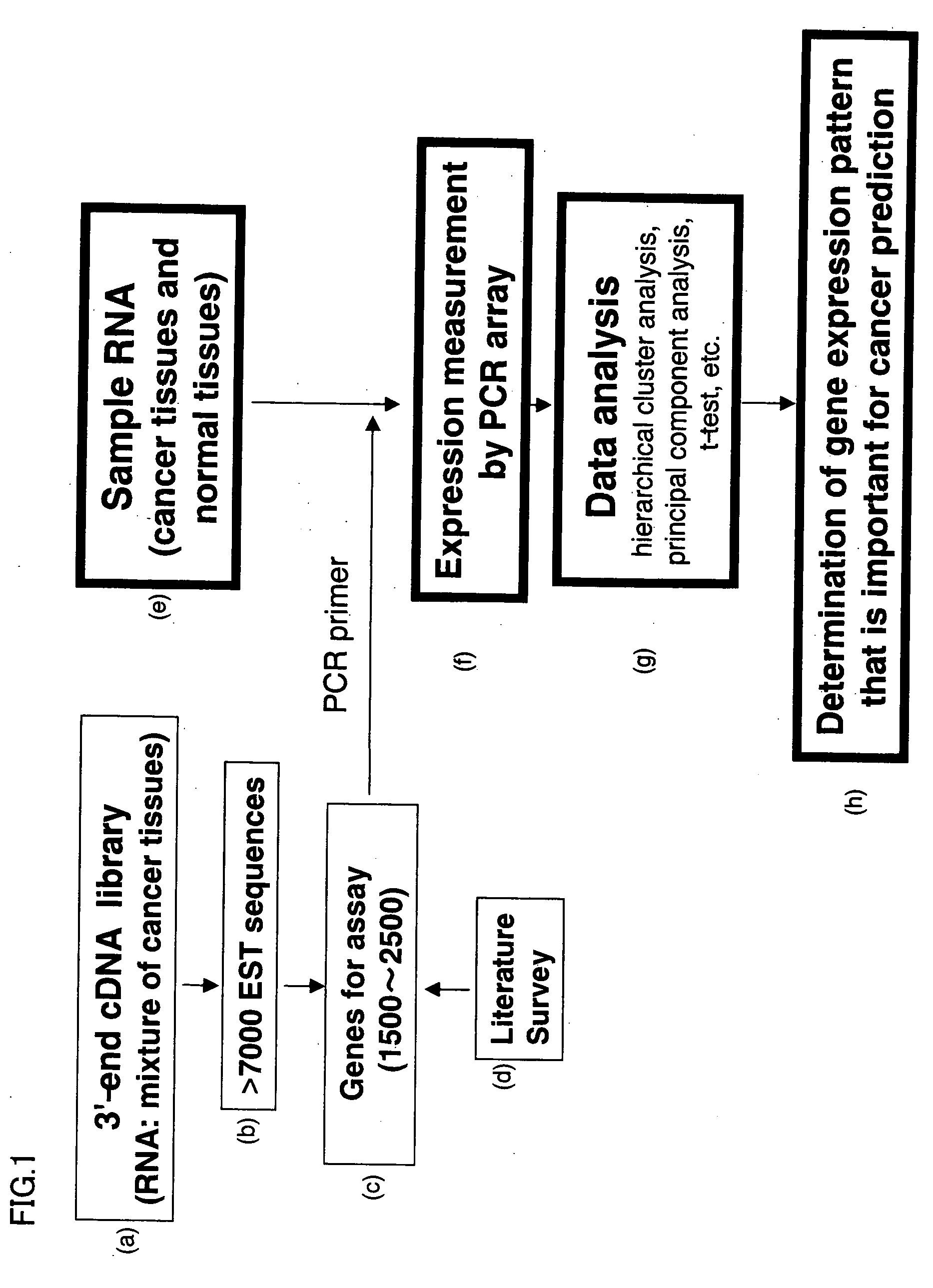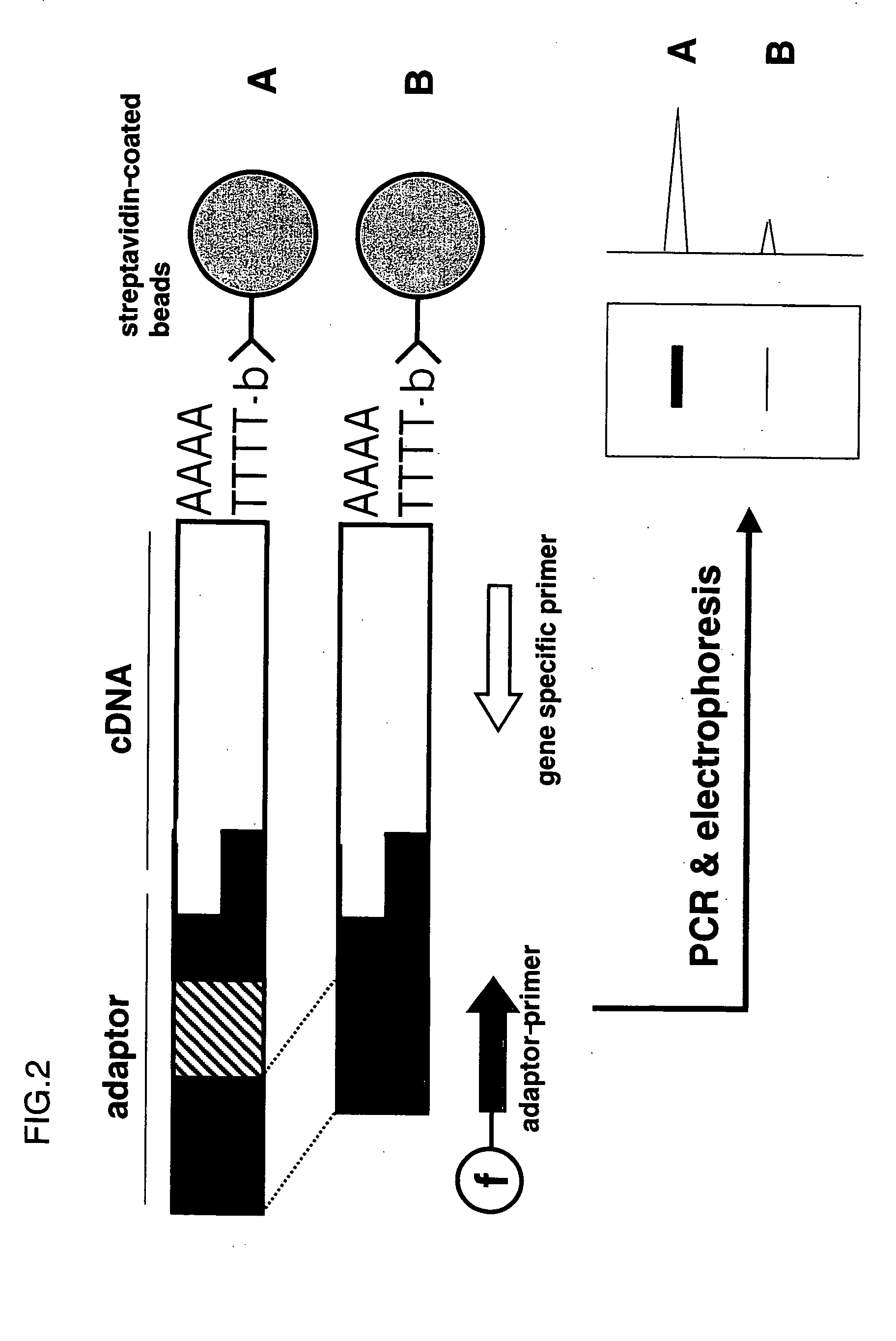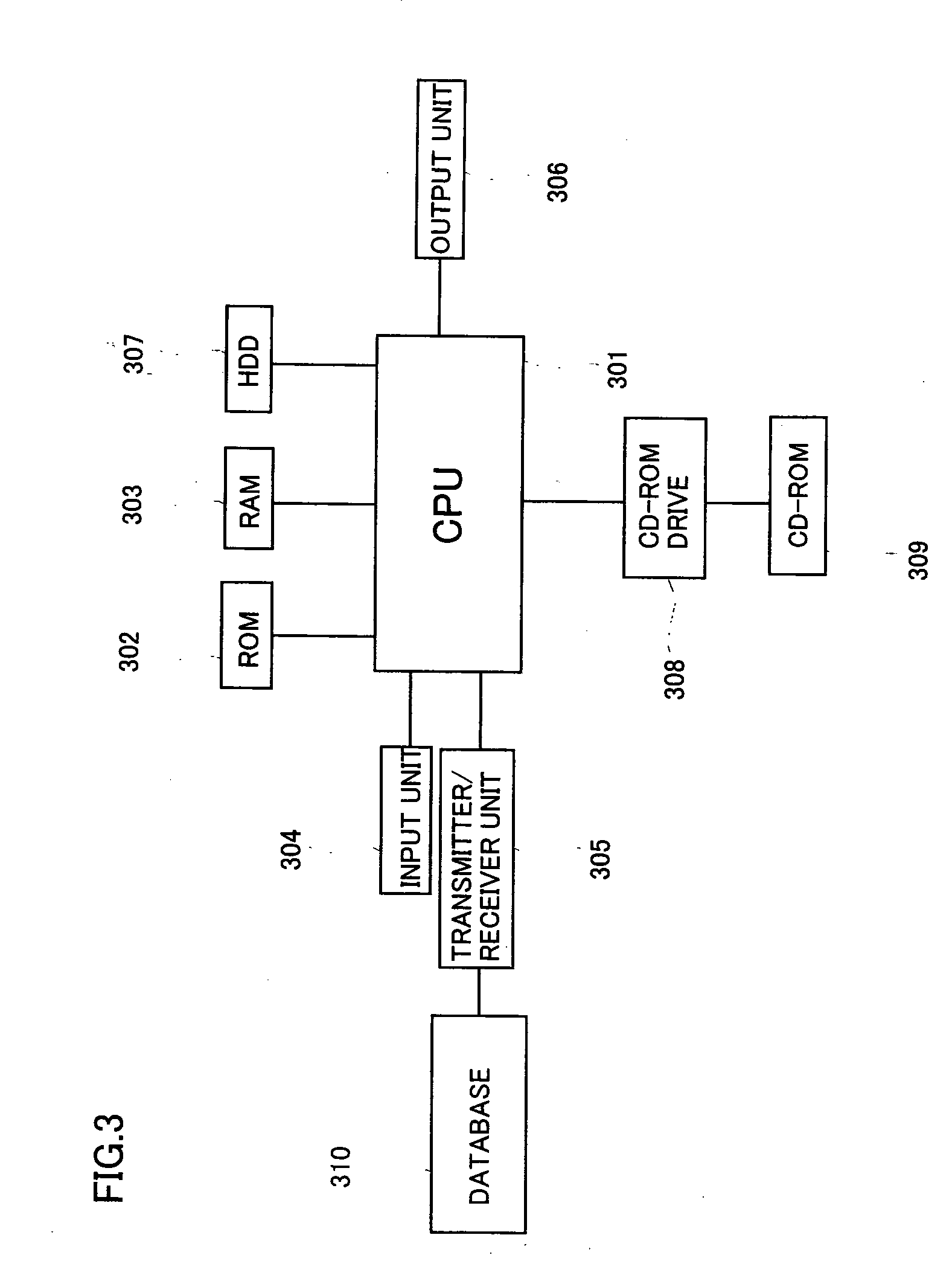Method of predicting cancer
a cancer and cancer technology, applied in the field of cancer prediction and drug design methods, can solve the problems of unsatisfactory prediction results and unsatisfactory marks for cancer diagnosis
- Summary
- Abstract
- Description
- Claims
- Application Information
AI Technical Summary
Benefits of technology
Problems solved by technology
Method used
Image
Examples
example 1
(EXAMPLE 1)
Adaptor-Tagged Competitive PCR Utilizing a Breast Cancer Specimen
[0191] The expression levels of 2412 genes were measured in 110 cases (98 cases of breast cancer, one case of male breast cancer, one case of thyroid cancer, and 10 cases of normal tissue) by an adaptor-tagged competitive PCR method.
[0192] Specifically, the tissues were homogenized and a total RNA was obtained from the above cancer or tissue by a guanidine isothiocyanate method. Then, a chemically synthesized biotinylated oligo (dT)18 primer was added to 7 μL of distilled water containing the total RNA (3 μg). The mixture was heated at 70° C. for 2 to 3 minutes, and was further maintained at 37° C. for one hour to synthesize cDNA. To the resultant single-stranded cDNA was added a reaction solution containing a DNA synthase, and they were reacted at 16° C. for one hour and then at room temperature for one hour, to synthesize double-stranded cDNA.
[0193] When the reaction had been completed, 3 μL of 0.25M ED...
example 2
(EXAMPLE 2)
Cluster Analysis for Breast Cancer
[0196] As a group of genes useful for classification, genes satisfying the following equation were selected:
(variance in cancer specimens) / (variance in normal specimens)≧1.20
As a result, 152 genes satisfying the above equation were selected. From those 152 genes, 21 were further isolated (selected), based on differences in expression levels between estrogen receptor-positive and negative groups (p−5). Table 1 shows a list of the isolated genes, in which sequences 1-21 are those of the isolated genes.
[0197] Then, cluster analysis was conducted based on the expression patterns of those isolated genes. FIG. 6 schematically shows the results, in which 179 cases are arranged vertically and 21 gene names are arranged horizontally. The gene names are, for group A from left to right, GS7435, GS2307 and GS2828. For group B, from left to right, GS2632, GS7288, GS6601, GS7583, GS7116, GS7715, GS6770, GS2471, GS6711, GS1176, GS7001, GS690, GS147...
example 3
(EXAMPLE 3)
Estimation of Metastasis and Early Recurrence of Breast Cancer
[0204] In the present example, the prediction of metastasis and early recurrence was analysed in 301 cases of breast cancer. Cluster analysis was conducted by using the 21 genes selected in Example 2. The results were as shown below.
1. Estrogen Receptor-Positive Group (Molecular Groups 1a and 1b in FIG. 7)
[0205] In this group, lymph node metastasis was observed in 45 out of 143 cases (31%). Early recurrence was observed in 5 out of 60 cases (8%).
2. Estrogen Receptor-Positive and Negative Mixed Groups (Molecular Group 2a and 2b in FIG. 7)
[0206] Lymph node metastasis was observed in 47 of 101 cases (47%), and early recurrence was observed in 14 out of 49 cases (29%).
3. Estrogen Receptor-Negative Group (Molecular Group 3 in FIG. 7)
[0207] Lymph node metastasis was observed in 21 of 44 cases (48%), and early recurrence was observed in 4 of 10 cases (40%).
[0208] Those results are shown in Table 7.
TABLE 7...
PUM
| Property | Measurement | Unit |
|---|---|---|
| Fraction | aaaaa | aaaaa |
| Fraction | aaaaa | aaaaa |
| Fraction | aaaaa | aaaaa |
Abstract
Description
Claims
Application Information
 Login to View More
Login to View More - R&D
- Intellectual Property
- Life Sciences
- Materials
- Tech Scout
- Unparalleled Data Quality
- Higher Quality Content
- 60% Fewer Hallucinations
Browse by: Latest US Patents, China's latest patents, Technical Efficacy Thesaurus, Application Domain, Technology Topic, Popular Technical Reports.
© 2025 PatSnap. All rights reserved.Legal|Privacy policy|Modern Slavery Act Transparency Statement|Sitemap|About US| Contact US: help@patsnap.com



